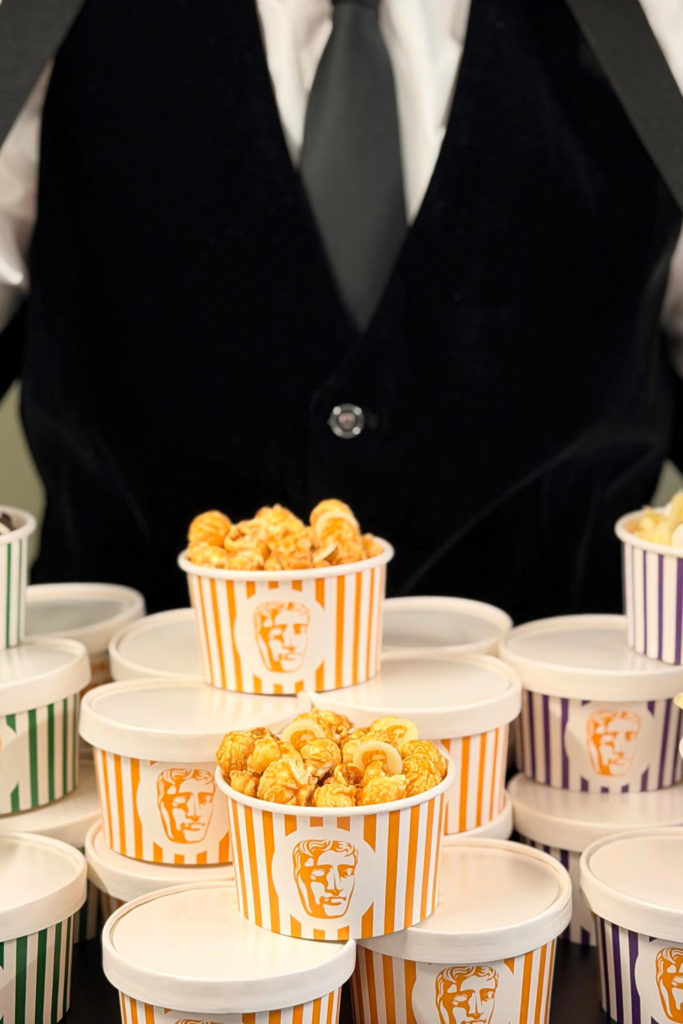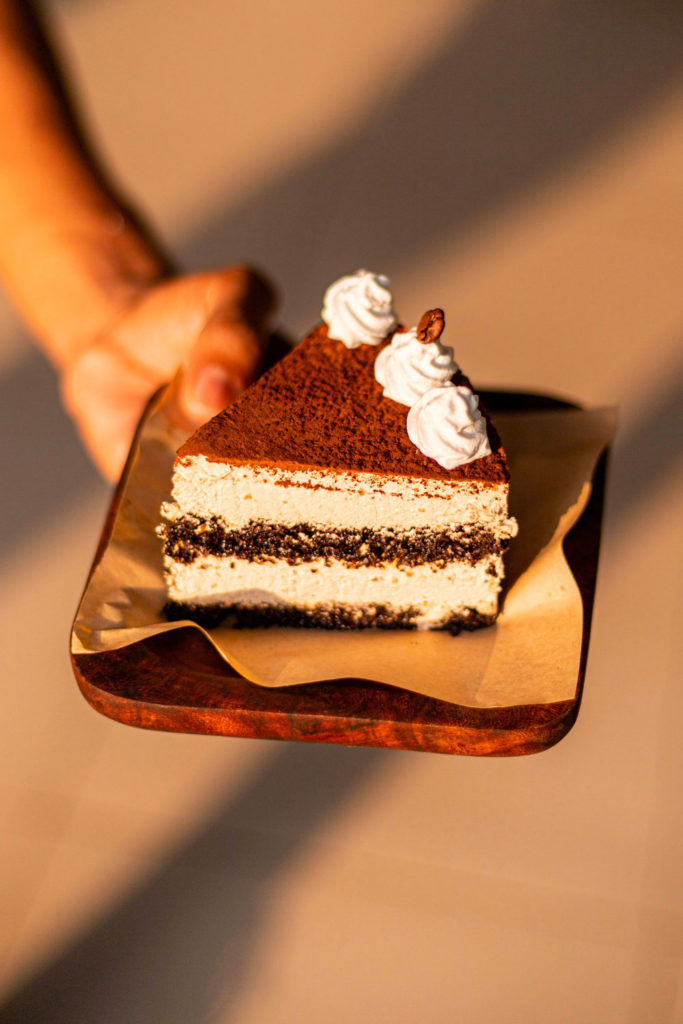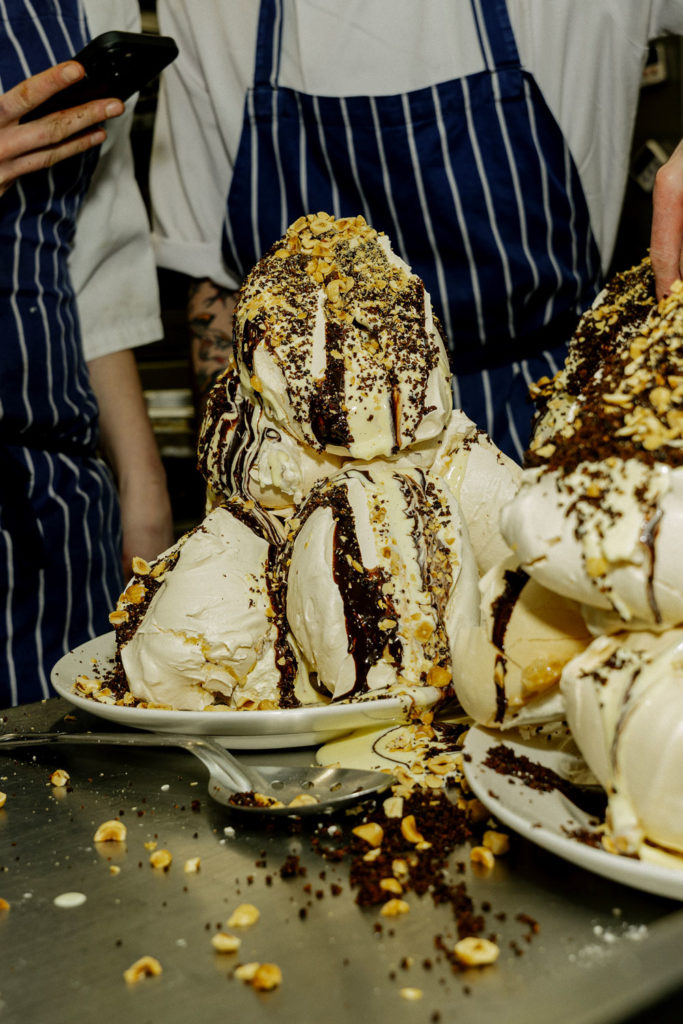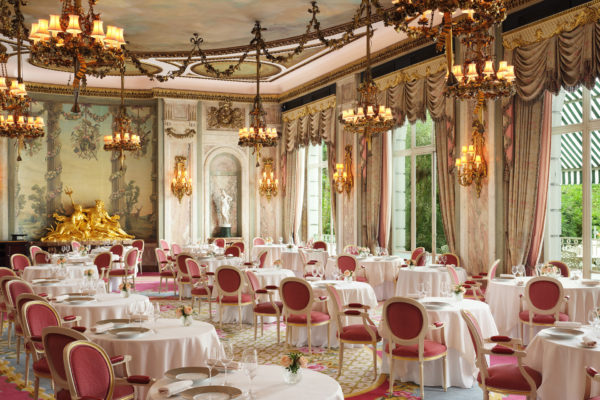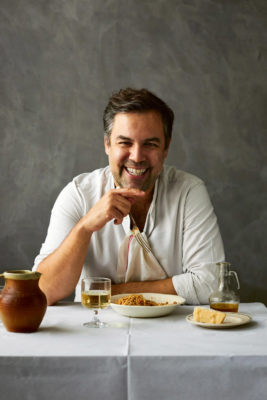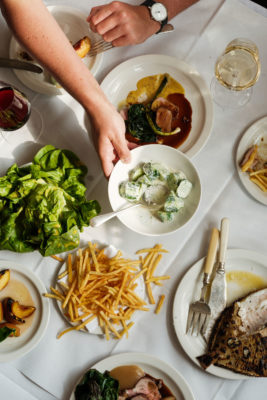Asma Khan: ‘Kitchens Have Been Transformed Into Toxic Places Of Violence’
By
5 months ago
We meet the trailblazing chef behind Darjeeling Express
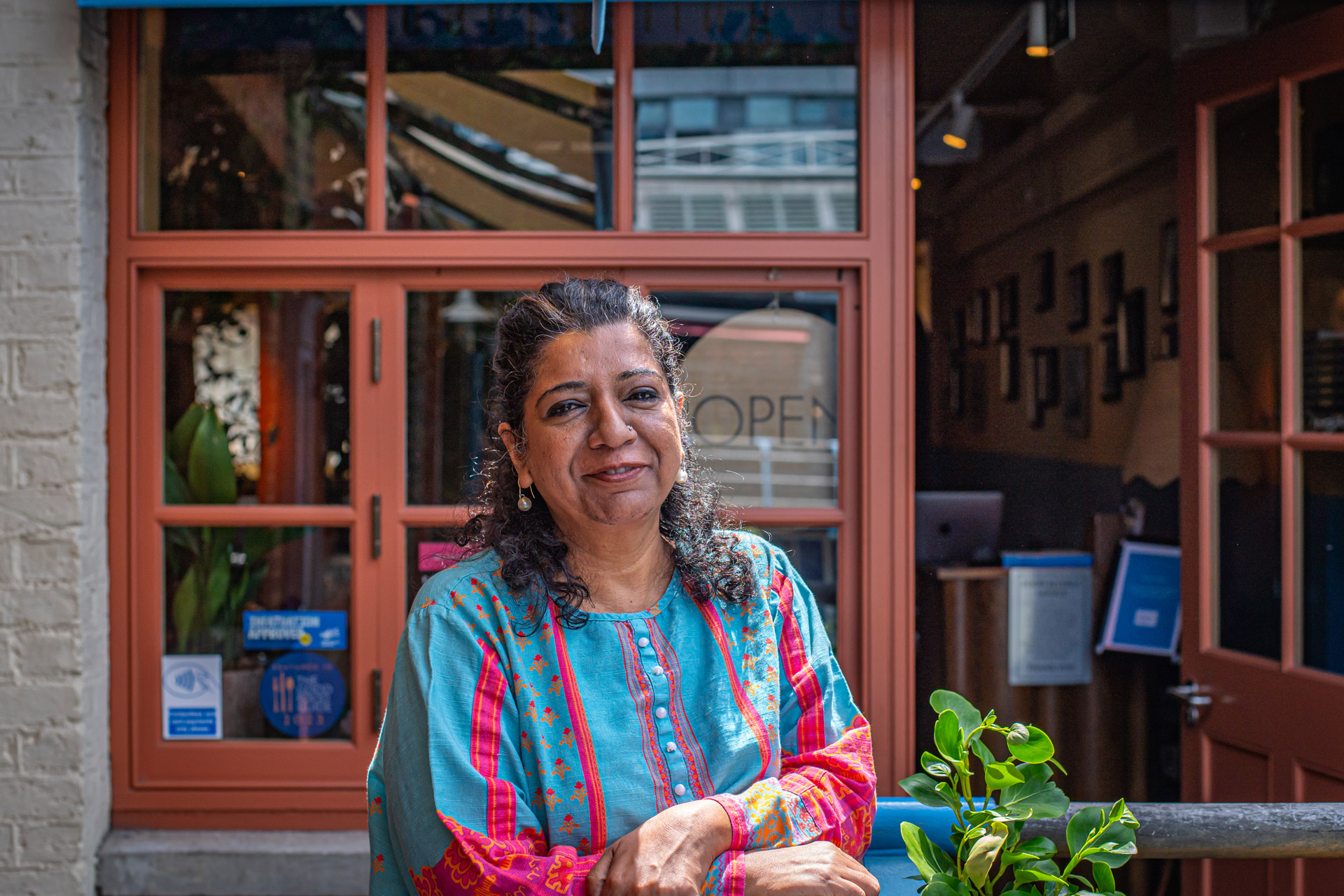
When Asma Khan moved from Kolkata, India, to Cambridge aged 22, she didn’t know how to cook. ‘I struggled a lot, because I found it very isolating – it was a real deep uprooting,’ she recalls. So, in a bid to combat her homesickness, on her first trip back home she asked her mother to teach her how to make the familiar dishes she had grown up eating. ‘I came back and started cooking, and I used that as a way of making friends,’ she says. At the time, Khan was studying law, but by the time she finished her PhD she realised her calling was to be a chef.
She began hosting supper clubs at her house, recruiting local mothers, grandmothers and nannies from her children’s school to help – a collective she now calls the original Spice Girls. This led to a pop-up, and eventually a permanent restaurant in London, Darjeeling Express, where an all-women team lovingly cook up dishes inspired by Khan’s Mughal heritage. Shortly after, she was approached to star on Netflix’s Chef’s Table, which propelled her to fame.
Since then, Khan has used her platform to become a force for good in the food industry, championing underrepresented voices, speaking out against sexism in hospitality, and supporting philanthropic causes, including being a chef advocate for the UN’s World Food Programme. For her latest venture, she was brought in to judge Uber Eats’ Women in Food award, presented last night to Laura Stone of Laura’s Pizzas in Bishopston.
Interview: Asma Khan On Gender Equality In Food, Chef’s Table & Her New American Restaurant
How did you find going on Chef’s Table?
I’d never done anything like this before. I wasn’t sure what to do. I just told them, please don’t script me, and they didn’t. I asked to show my entire team, and they did that, I just basically ignored the camera. I took them back to my home, to my father, to my mum, to the ruins of my family fortress. It was very chilled out, because I don’t get stressed out about speaking to cameras.
When you opened Darjeeling Express, how did you want it to be different from other restaurants?
I don’t think I was trying to be different. This is an extension of the team that did the supper clubs in my house, over that five-year period I worked with them extensively, it’s just an organic growth of a collective of women. We began as a small collective cooking in my house, and that’s why Darjeeling Express is so magical. I can turn around now and say it is a feminist project and be lying. It’s not that I was trying to be unique, I just did what I knew would work.
What dishes could you never take off the menu?
Some of the dishes we cannot take off the menu, because I think there’s going to be an absolute showdown – things like the kosha mangsho, which is this Bengali mutton curry. It is a huge favourite. The puchkas, and the tangra prawns (smoky garlic and chilli smoked prawns).
To be honest, the menu is decided on what I feel like eating, and also based on what I think goes well with something. I famously still go around interfering with people’s orders, I’ll tell them: why are you having so much of this with that? I really want them to have a great experience. In fact, people laugh at me because I always say, don’t do two mains. Two people don’t have two mains, you know, have this and have this side order. My accountant hates this, but I want them to have an enriched and a vivid and absolutely exhilarating experience – this matters to me more than the money.
View this post on Instagram
The King and Queen came into the restaurant earlier this year. How was that experience?
They were wonderful – and they were very excited about the food. Because of the protocol they don’t eat, the food was packed and taken away. The King packed his own biryani, he also packed biryani for other people. He packed all the dates for Ramadan for all the medics, because over Ramadan, I distributed biryani and food to all the hospitals.
You judged the Uber Eats Women in Food award. Why is the award important to you?
We need to celebrate and highlight the contribution of women in the industry. This is a great platform because Uber is a recognised brand for everybody. For them to have to recognise this as a separate category is very important – every little thing that we do is important because we’re starting from so far behind as far as recognition, acknowledgement and celebration is concerned. We’re so far behind that everything that’s happening now is significant because it will help, generally, to shift the balance of how things are at the moment.
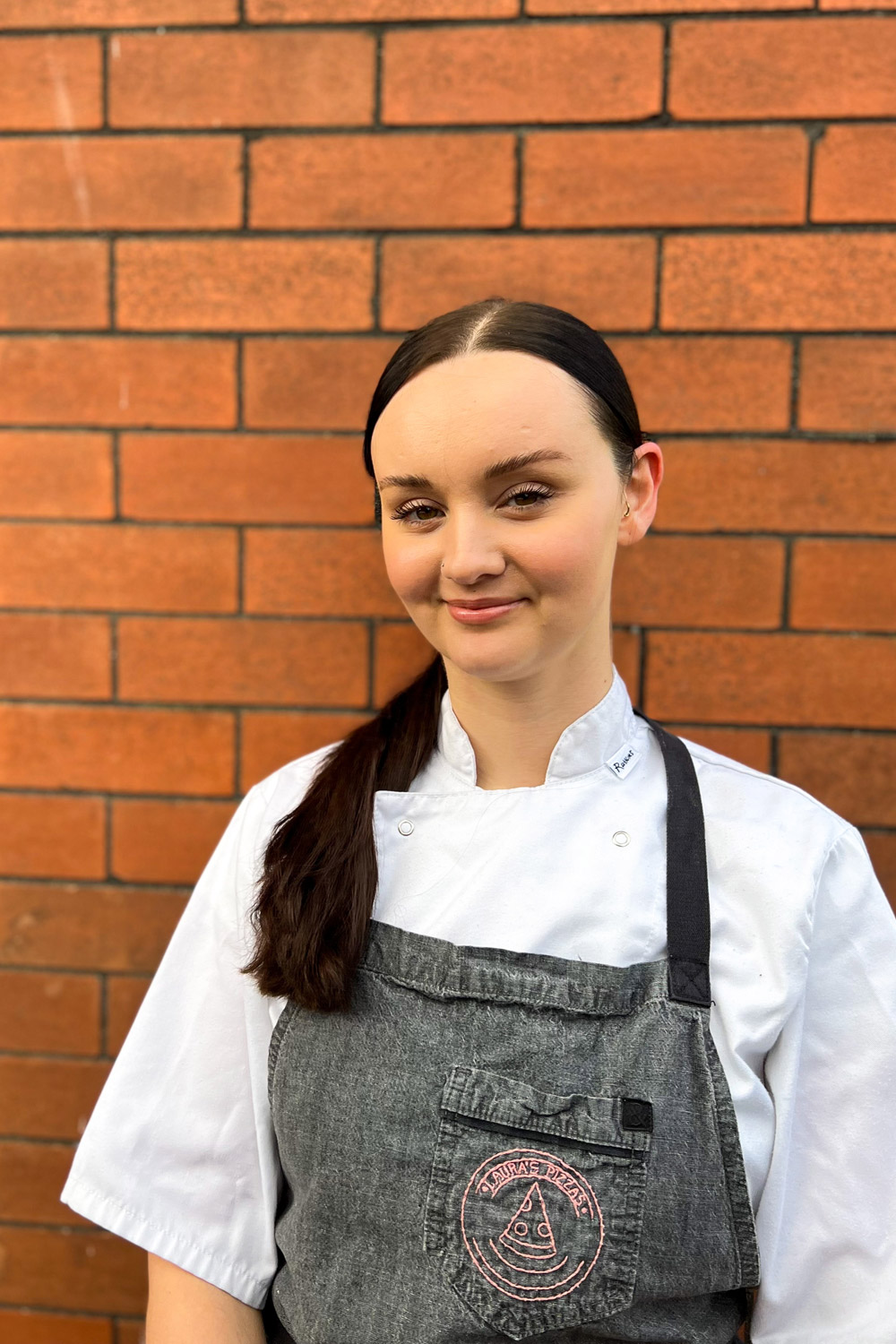
Award winner Laura Stone
Is sexism still a big problem in the restaurant industry?
I don’t think things have improved. With the economy getting tough, we always hear that it’s all the women who are losing their jobs, right? Because somehow it’s like, when things get tough, you want to have this kind of tougher environment, and it becomes the law of the jungle. All they’re looking at is physical prowess. If you are judging this on a kind of mortal combat game, then you would go for this muscular, tattooed, pierced man who may be physically stronger than this woman, who may physically look more delicate. But this is not what cooking is. Cooking is not a physical sport. The problem is that the kitchens have all been transformed and morphed into these testosterone-driven, toxic places of violence and anger, and this is what is isolating women.
What did you look for in the winner?
What I was really looking for was courage. It’s the women who were brave enough to continue when it may not have been the perfect start. It’s a very male-dominated area.
How can the awards help restaurants to grow?
Apart from the fact that it of course makes you feel rewarded, personally and for your team, it’s also aspirational for those who turn up, who have been nominated. Having a gathering like this is important because you get to meet other people who are doing the same thing as you, and I think that’s very powerful, because everybody’s in their own little corner. It makes you feel seen.
Is it true that you’re planning to open a restaurant in New York?
Yes, I am looking at America, not just New York. I’m looking at other options as well. I think the time has come – it has been eight years, we are now a bit more grown up. Unlike everybody else who’s flooded with venture capitalist money, this is my own money, it’s my entire life savings. I always say, start small but dream big. So yes, America is definitely something that I’m looking at very seriously. I don’t know the food scene there that well, so I’m speaking to close friends who are restaurateurs there. On your own, you can do very little, but I’m a great believer in collaboration and collective, and everyone lowering their ego.
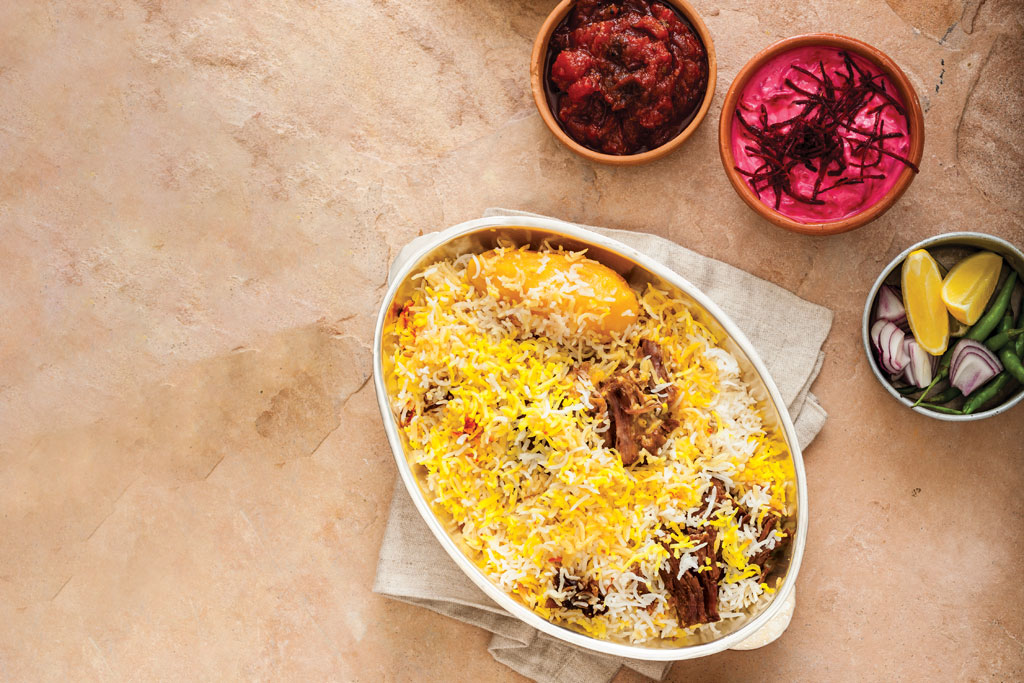
Darjeeling Express
A few British Indian restaurants are moving to New York at the moment, like Dishoom and Kricket. Why do you think this is?
It could just be that the economic climate in the UK is challenging, so people are looking at alternatives. The taxation, the increase in national insurance contribution, also the fact that people are eating out less. And there’s one other issue, which is almost unspoken, which is that there’s so many people on weight loss medication – you can feel that a lot of people are eating less when they go out.
There’s a lot of pressure on restaurants, I think maybe people are just spreading out their options and going across the pond. But also, it’s great for America that these brilliant Indian restaurants are going there. The world is big enough for everybody.
Maybe people might think, you know, she’s all emotion, she’s not thinking through – no, I’m highly successful because I’m really smart, but it’s not either or. I also have a huge amount of passion and love for what I do. I’m smart and I understand numbers, so I know where I’m going. The problem is that for a lot of women, you’re forced to choose your side. You’re either a numbers person and you’re very cynical in life, or you’re all about emotions and kindness and you’re seen as weak. I always tell people, never mistake my kindness for weakness.
This happens to women a lot, because you’re not aggressive and you’re not toxic, and you’re not going around slapping everybody in your kitchen, you’re seen as weak. It’s a terrible system we have set up where we’re worshipping on the altar of arrogant men screaming at people on television. How far have we fallen from what we should be? But in kitchens, this is happening, and no one is saying anything. Shame on them.
That’s why the work you’re doing has been so powerful. What’s the atmosphere like in the kitchen at Darjeeling Express?
It’s very relaxed, it’s not hierarchical. There’s a lot of respect. No one is screaming and shouting at each other – there’s huge support for each other, there’s genuine friendship and love. On The Darjeeling Express, it’s like you get onto a train journey, a little steam train. It’s an adventure, we’ve all been in it together from day one.
What’s your go-to recipe for cooking at home?
I cook a lot of keema, which is mince with really high quality meat. Keema can be eaten with anything – rice, roti, even with toasted bread or a crumpet. My favourite way is to stuff it in an omelette.
Any hidden gems for buying ingredients in London?
I’m sure a lot of Londoners know this, but one of the best spice shops is near Euston on Drummond Street [The Indian Spice Shop]. It’s fabulous, they literally have everything.
How do you live a balanced life?
I don’t – this is one challenge as an entrepreneur. But I believe my life will have a balance – my dream is to live on a farm to grow my own vegetables. I want to watch sunrise and sunset, and I want to be able to write poetry in peace. That’s my aspiration, I’m going to get there. At the moment there’s no balance, I just work like a maniac.
Find out more about the awards at ubereatsawards.com


